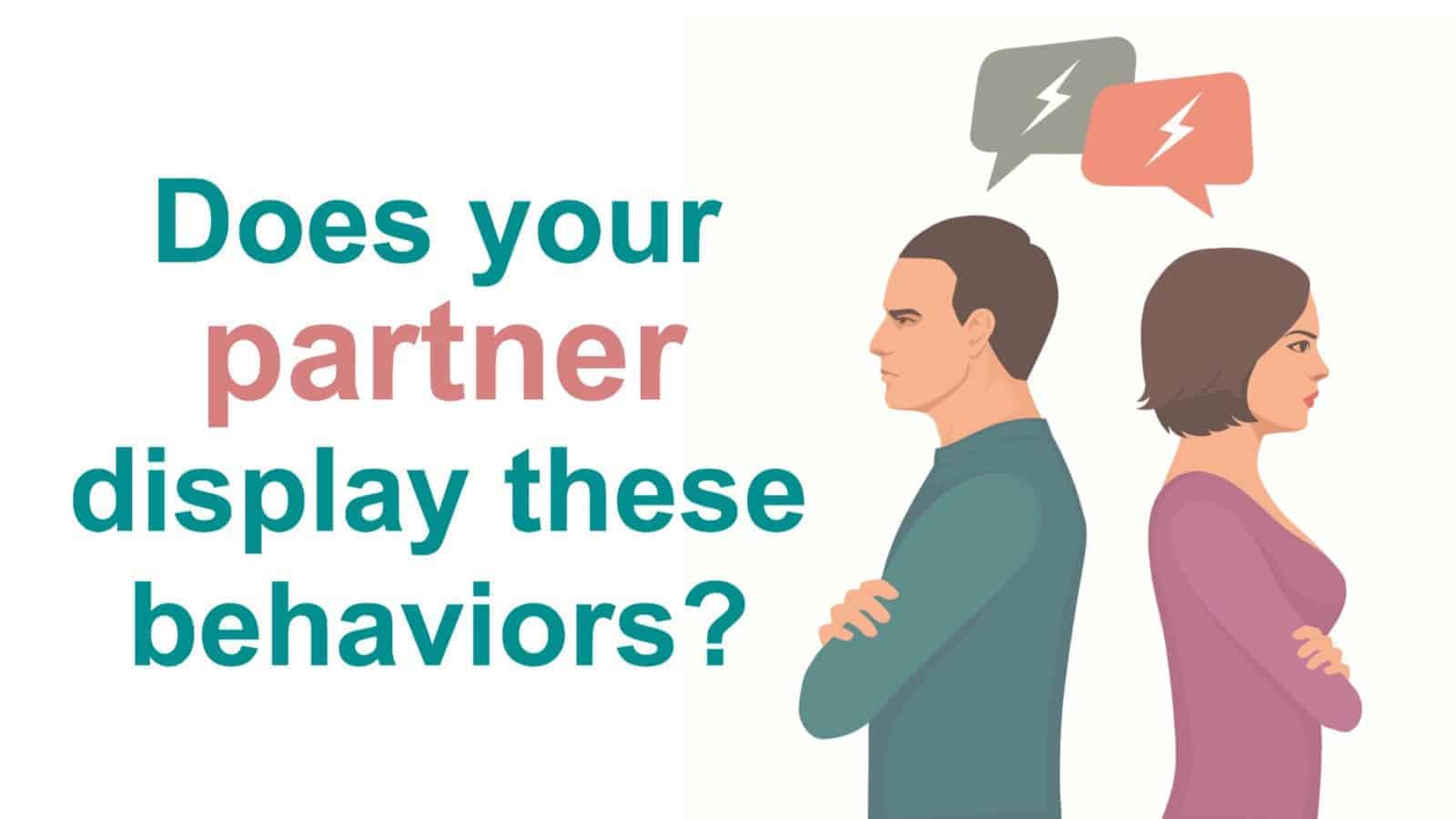Everyone has been passive aggressive one time or another in their lives. We all do it! It could be ca complaint that you never get any help around the house, or writing a snide note to someone who parked poorly at a busy store. Passive aggressive things happen to all of us.
However, that shouldn’t be a core part of someone’s personality. Moreover, it can cause many issues in a relationship when your partner has a passive aggressive personality.
Professor, presenter, private coach, and author Preston Ni says, “Passive aggressiveness may be directed towards a person or a group. The root causes are complex and deep-seated. Whatever the reasons that may drive an individual to be passive-aggressive, it’s not easy to be on the receiving end of such veiled hostilities.”
It may be hard to tell whether or not your partner has a passive aggressive personality, but here are some telltale signs that your partner is more passive aggressive than normal.
Here Are 10 Signs Your Partner Has A Passive Aggressive Personality
“Passive-Aggressive behavior consumes unnecessary time and resources. Say what you mean, let’s resolve the issue, and move on to more productive tasks.” – Izey Victoria Odiase
1. You’re uncomfortable around them
Your partner shouldn’t be someone that you’re uncomfortable to be around. It may be a sign that your partner has a passive aggressive personality if you find it hard to be around them sometimes because of how they act.
According to marriage and family therapist Andrea Brandt, Ph.D., “When the person you love is passive-aggressive, emotional honesty and open dialogue is difficult. Passive-aggression can be a hard game to play as a partner, even for the most emotionally healthy and stable individual.”
You may feel like you’re walking on eggshells around them because you know that anything can set them off. After all, they tend to bottle everything up until they burst.
2. They repeat their behaviors
“Passive aggression is when the behavior is more persistent and repeats periodically, where there are ongoing patterns of negative attitudes and passive resistance in personal relationships or work situations,” says author Andrea Harrn.
Instead of talking about what bothers them, they tend to bottle things up and then blow up – even when this type of behavior never produces the results they want. However, they continue to repeat this behavior over and over. They refuse to change, always pointing to someone else as the culprit of their frustration, rather than their own inability to change.
3. They avoid responsibility
Nothing is ever their fault. Find yourself apologizing for being upset with your partner, or often on the other end of your partner feeling angry or upset with you. Your partner may have a passive aggressive personality. Even if something is their fault, your partner may find ways to twist and manipulate the situation so that everyone else is at fault.
“An autonomous person has healthy self-esteem, is assertive, and can take a stand and keep commitments. Not so for someone passive-aggressive. Their behavior is designed to avoid responsibility for themselves and family, and sometimes they depend unfairly on their partner for support,” says marriage & family therapist and author Darlene Lancer, JD, MFT.
Even when they’ve done something to hurt you, you may find that you end up apologizing for being upset with them.
4. Negativity and pessimism
If your partner never seems to be able to see the positive side of a situation, you may be dealing with someone who has a passive aggressive personality. They’re usually negative and “glass half full” about many situations. They may often express the idea that the world is against them. Indeed, they feel that nothing ever goes right for them – even if they never do anything to try and change their circumstances.
5. They believe they’re underappreciated
And they complain about it all the time. For someone who has a passive aggressive personality, they believe that everyone around them doesn’t appreciate them enough. When you have a passive aggressive partner, this may come out in them passive aggressively insisting that you don’t appreciate them enough or keeping score on how much they do for you as a way to get you to do things for them.
6. They believe they’re being deceived
Someone with a passive aggressive personality may always feel like they’re being lied to. This can result in problems in the relationship where your partner may take compliments as backhanded, or believe that you’re lying to them about something important in the relationship. This can lead to many arguments where the passive aggressive personality insists they’re being lied to when they aren’t.
7. They procrastinate
A passive aggressive partner will rarely tell you “no.” This may make them seem accommodating and helpful. Instead, you will find that they often procrastinate until you give up asking them.
“Most of us are familiar with stubborn children. When kids reach a certain age—the terrible twos, the teens, or some other time during childhood or adolescence—they refuse to do what they’re told. But kids are kids. It is less easy to comprehend when a grownup behaves in this way,” says Berit Brogaard, D.M.Sci., Ph.D., a professor of philosophy.
You’ll find that your partner often has to be asked multiple times to do a task or favor for you, and they keep telling you that they will – but in the end, they just procrastinate until you have to do it for them.
8. They’re constantly criticizing
Whether it’s you, the show you like, your friends, family, your job – whatever is happening in your life, a passive aggressive personality is always criticizing something. There’s nothing that they like, and there’s always something wrong with everyone and everything. This can lead to feeling uncomfortable and upset around your partner a lot of the time. In time, you will start to keep things to yourself.
9. They half-heart everything
When you do manage to get your passive aggressive partner to do something for you, they do it in a manner that makes it clear that they really didn’t want to, and didn’t care about the outcome. If you ask them to wash the dishes, half of them will still have food and soap on them. If you ask them to fix something, they only fix it halfway. A passive aggressive personality will always make it clear that they’re upset that you even asked in the first place.
10. They dislike authority
Now, not everyone who has a problem with authority has a passive aggressive personality. However, if your partner seems to always want to challenge you on your boundaries, and never seems to be able to take ‘no’ for an answer, that is a high chance that they have a passive aggressive personality.
A passive aggressive person’s “… personality may include pouting or acting sullen, stubborn, or argumentative. They feel misunderstood and unappreciated and scorn and criticize authority. They frequently complain and envy and resent those more fortunate,” says certified hypnotherapist, marriage and family therapist Darlene Lancer, JD, MFT.
Whether it’s a cop, your parents, or their parents, a partner who has a passive aggressive personality hates any show of authority. They may not get along well with their in-laws as a result.
Final thoughts
Being with someone who has a passive aggressive personality can take a drain on both your positive emotions, as well as your relationship with them and all of the people in your life. Knowing the signs of a partner who has a passive aggressive personality can make it easier to understand how to deal with them, or to spot them so you can make changes in the relationship, or walk away if that is what needs to be done.















